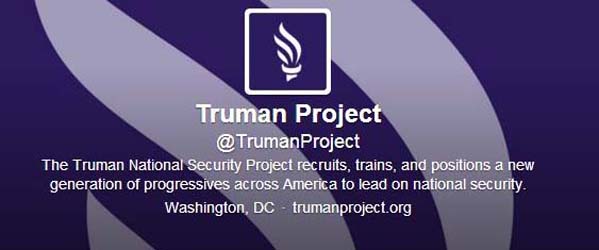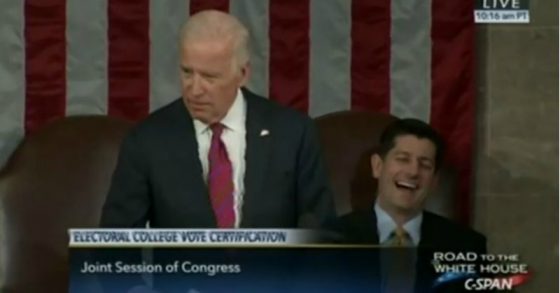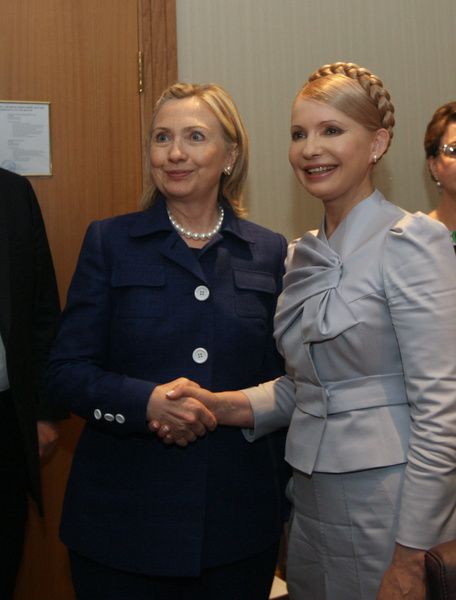By: Denise Simon | Founders Code
Turn the corner and we find yet another swampy organization where Hunter Biden had a parking space called the Truman National Security Project. Yeesh, this outfit is really a left-leaning organization founded by Rachel Kleinfeld. She is also a senior fellow at the Carnegie Endowment for International Peace.
The roster of young Truman fellows in high places includes Matthew Spence, who co-founded Truman with Kleinfeld and is now a senior aide to Obama’s National Security Adviser Tom Donilon, and Eric Lesser, who until he left for Harvard Law this summer worked in the White House, first as David Axelrod’s right-hand man and then as director of strategic planning for the Council of Economic Advisers. (He also organized the annual White House Seder.) Others have worked in the Department of Homeland Security, the House Permanent Select Committee on Intelligence and Committee on Foreign Affairs, and the Pentagon offices of the chairman of the Joint Chiefs of Staff. There are journalists, like Patrick Radden Keefe, and analyst-bloggers like Micah Zenko, of the Council on Foreign Relations. And there are people like Liz McNally, a West Point graduate and Rhodes Scholar who worked as a speechwriter for Gen. David Petraeus in Iraq—and who, in August, wound up on the cover of Time magazine under the headline “The New Greatest Generation.” More context and details here.
Okay, back to Hunter…
\In 2011, two years into his father’s term as vice president, Hunter Biden was appointed by the Truman National Security Project, a left-leaning foreign policy network, to its board of directors. The younger Biden was, at the time, one of just six members of the governing board, where he served alongside the organization’s founder and CEO, Rachel Kleinfeld, and a handful of corporate leaders. He had no obvious qualifications for the position.
As the Truman Project expanded, Democratic national security heavyweights including Jake Sullivan, Hillary Clinton’s foreign policy guru who ran the Department of Policy Planning during her tenure at Foggy Bottom; Matthew Spence, a Defense Department veteran who served as a senior aide to Obama national security adviser Tom Donilon; and Steve Israel, the former Democratic congressman and head of the Democratic Congressional Campaign Committee, eventually joined Biden on the board.

A cached version of the organization’s website shows that Biden rose to the position of vice chairman of the board, serving there until at least March of 2019. It is not clear precisely when—or why—Biden stepped down from the board, and the Truman Project did not respond to requests for comment. But during his tenure on the board, according to the New Yorker, he was in and out of drug rehabilitation facilities several times and, in 2014, joined the board of the Ukrainian gas giant Burisma and was discharged from the U.S. Navy after he failed a drug test. He later claimed that cigarettes he had smoked outside a bar may have been, unbeknownst to him, laced with cocaine.
Founded in 2004 by Kleinfeld, a Yale University graduate and Rhodes Scholar, the Truman National Security Project was intended to mirror conservative think tanks like the Heritage Foundation and the American Enterprise Institute. Funded by the Ploughshares Fund, the organization awards dozens of fellowships every year and aims to mentor a new generation of Democratic foreign policy leaders.
(Sidebar: The Ploughshares Fund was a major funder promoting the Iran Nuclear deal and remember lil Ben Rhodes of the Obama White House later joined Ploughshares.)
Kleinfeld, who left the organization in 2013 and now serves as a senior fellow at the Carnegie Endowment for International Peace, did not respond to a request for comment. The Truman National Security Project did not return multiple requests for comment. A lawyer for Hunter Biden did not respond to a request for comment. A spokeswoman for John P. Driscoll, the chairman of the board of the Truman National Security Project, did not respond to a series of questions including why Biden was appointed to the board and when he stepped down from the position.
Kleinfeld has, however, written about her deep concern about corruption in Ukraine, writing in 2014, the year Biden joined Burisma’s board, that “Iraq’s fall on the heels of Ukraine’s collapse should be compelling. Curbing corruption before it tips into Kalashnikov-carrying rebels and public crucifixions is good security policy. And we need to get better at it.”
Biden was appointed to the Burisma board as the oil and gas giant faced a slew of corruption investigations involving its owner, Mikhail Zlochevsky, who was facing a money laundering investigation.
During Biden’s time on the board of the Truman Project, the organization joined a network of other left-leaning national-security oriented outlets with which it is closely linked, decried the Trump administration’s foreign policy initiatives and called for the resignation of Attorney General William Barr. Defend American Democracy, which identifies the Truman National Security Project as a “partner organization,” ran a national ad urging Americans to “hold the president accountable for abusing his office and risking national security for his own gain.”
Biden wasn’t the organization’s only connection to Burisma. Throughout his tenure on the board he sat alongside Sally Painter, the chief operating officer of the Washington, D.C., lobbying firm Blue Star Strategies, which was hired by Burisma to improve the company’s image in the United States. A November Wall Street Journal report detailed how Painter’s colleague, Karen Tramontano, used Biden’s name in an effort to secure meetings with senior State Department officials, though the paper said it was not clear “whether the younger Mr. Biden knew his name was being used by Blue Star in its contacts with State Department officials on Burisma’s behalf in early 2016.”
While it is unclear when, exactly, Burisma retained Blue Star Strategies, Biden and Painter were serving together on the Truman board while Blue Star was working for Burisma.
As a tax-exempt organization, the Truman National Security Project is required to file tax returns indicating whether any of its officers or key employees have a “business relationship” with any others. Though Burisma tapped Painter’s public relations outfit while Biden was a member of the board, the Truman Project answered “no.” It further indicated that its officers had been briefed on their duty to disclose any conflicts of interest and that it was “regularly and consistently” monitoring compliance with the policy.
Michael Breen, president and CEO of Human Rights First, who served as president and CEO of the Truman Project when the tax returns were filed, and who is identified on them as the individual who possesses the organization’s books and records, did not respond to phone calls or emails seeking comment.
Truman fellows can now be found throughout the D.C. foreign policy establishment. Former secretary of state Madeleine Albright; Senators Chris Coons (D., Del.), Tammy Duckworth (D., Ill.) and Kamala Harris (D., Calif.); and former undersecretary of defense for policy Michele Flournoy are board members of its sister organization, the Truman Center for National Policy.
The Truman National Security Project’s current president and CEO, Jenna Ben-Yehuda, whose contact information is not publicly listed on the organization’s website, did not respond to a request via Twitter for an appropriate point of contact for media inquiries. A page listing the group’s membership is “currently under construction,” according to the group’s website, and the email address listed for press inquiries was inoperative.
On Tuesday—even before his disappointing fifth place finish in New Hampshire—Joe Biden fled the state for South Carolina, where he is hoping African-American voters will revive his flagging campaign. If that hope proves futile, it will be in part because of the perception that, as vice president, Biden either used his name and influence to help friends and family or looked the other way while they did so at places like Burisma and the Truman National Security Project.
As of June 2017, it is composed of 16 chapters from 47 different states across the nation and claims more than 1,600 members. It supports American leadership, using its defense and diplomacy in the world on issues involving shared security and democracy promotion abroad. Many of its members are former or current military personnel, diplomats, foreign policy lobbyists, and political activists. The Truman Project has been criticized for giving the impression that it is bipartisan and independent while being supportive of the Democratic Party.


















